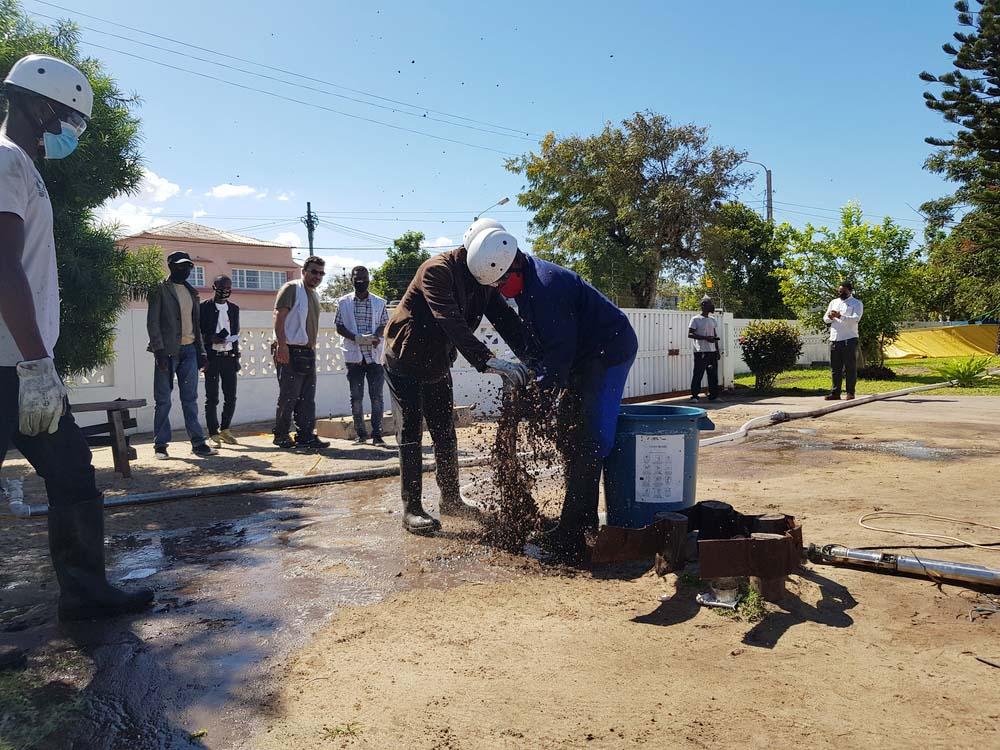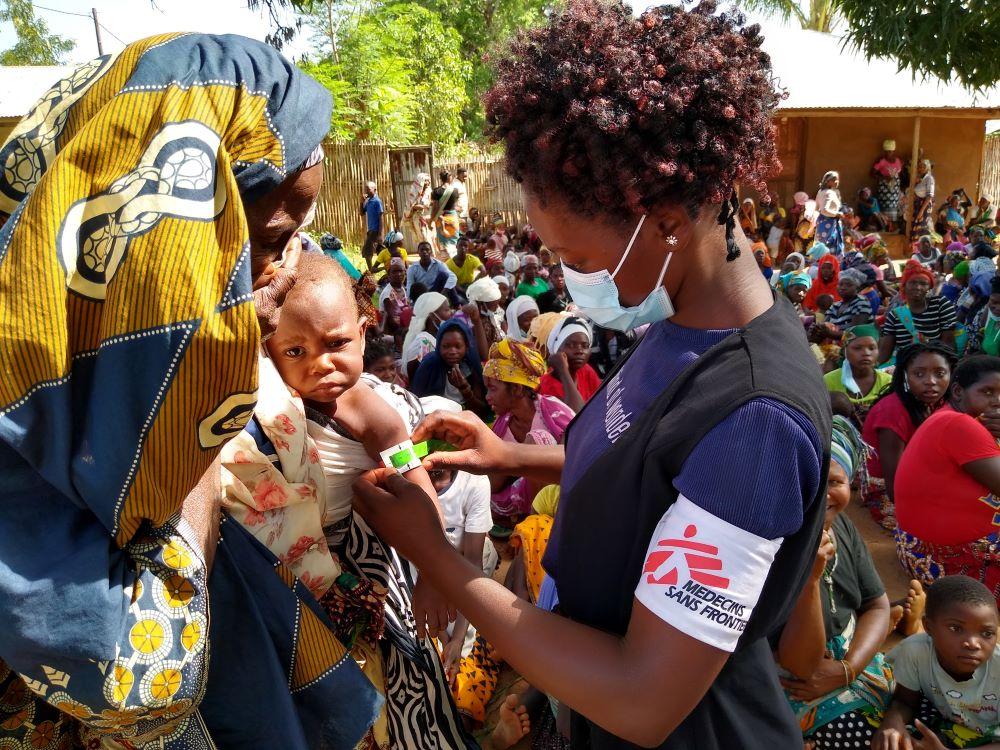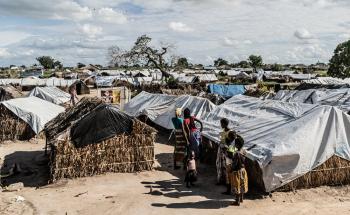“I want to reunite with my husband so we can start over and see how we can move on with our lives,” says Magrete, who fled her home during the recent attack on Palma and is currently staying in a temporary shelter set up in a stadium in Pemba, the capital of Mozambique’s Cabo Delgado province.
“I got a call from my husband at around 3 pm on 24 March,” remembers Magrete. “He warned me that the situation was not good and that I should leave our house with our children and meet him at his workplace. Even before we left the house, I could already hear the sound of gunshots in the city. We ran to my husband’s office, and we hid in the backyard. There were others there too.
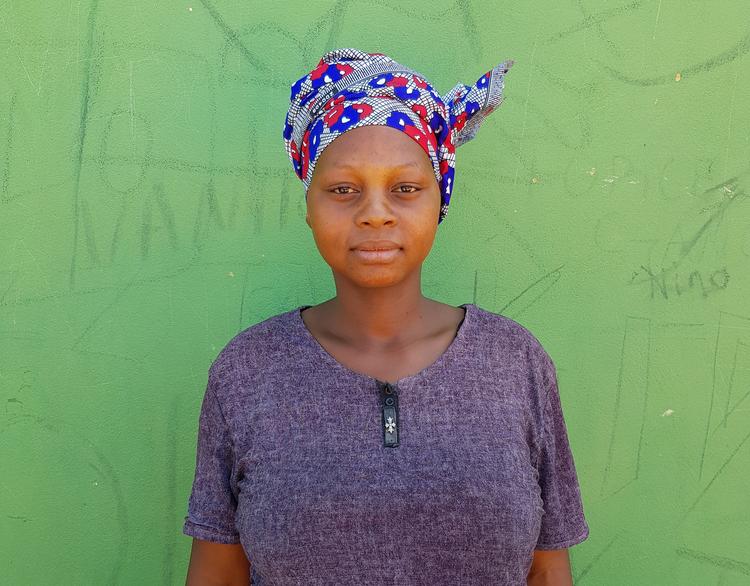
“Soon we realized we were not safe there and my husband helped me and our children over the fence, and we ran away. Some people didn’t manage to escape. We don’t know what happened to them, if they died or were kidnapped.
“We were on the outskirts of Palma, by the beach. We stayed there for two days. On the third day, we had to run away from the attacks again, they had found us. We kept on running along the beach towards Afungi; others ran into the water and never came back out. For days we didn’t eat anything. We drank water from small streams and ponds that we found along the way.
“We arrived at Afungi together: me, my husband and our two sons. But when the boat came to rescue us, they said my husband would have to wait until the next day – they were prioritising women and children. My husband has a mobile phone, but I haven’t been able to get through to him since I arrived here. I don’t know where he is or what condition he is in.
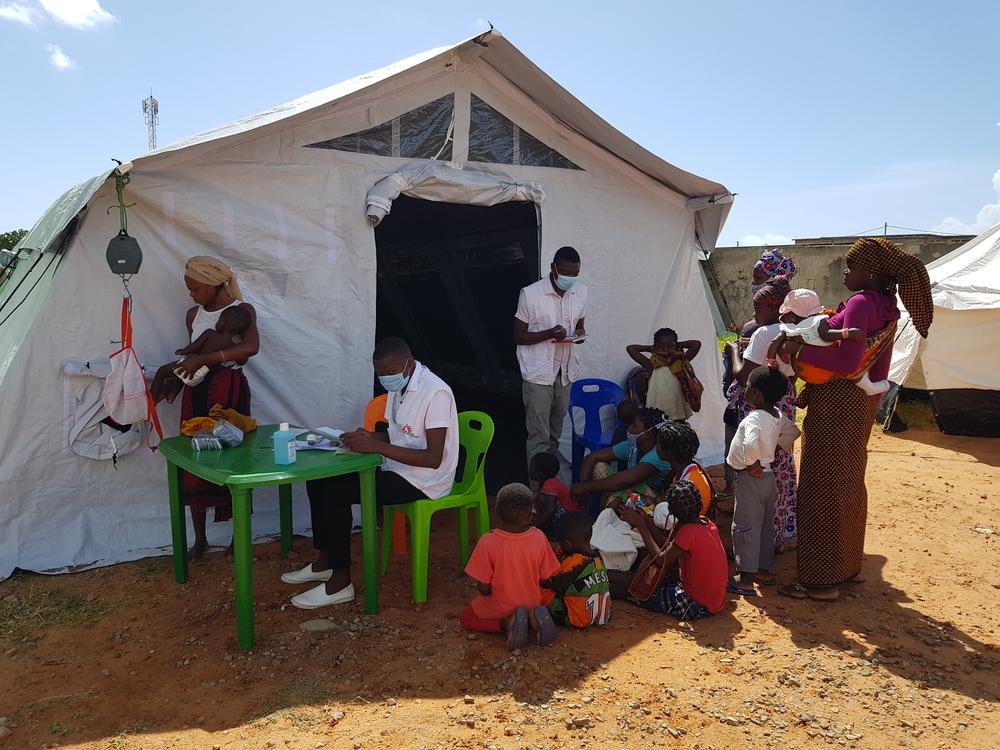
“We arrived at Afungi together: me, my husband and our two sons. But when the boat came to rescue us, they said my husband would have to wait until the next day – they were prioritising women and children. My husband has a mobile phone, but I haven’t been able to get through to him since I arrived here. I don’t know where he is or what condition he is in.
“We were scared in Palma, we lived in fear. We knew other villages had been attacked, because I lost contact with my parents who lived in Quinina, in Nangade district [which has been attacked multiple times since 2018]. My nephew was kidnapped in Palma, and we don’t know where he is. And now I’ve lost contact with my husband too…
“I’ll wait here for a few days, but if I can’t get in contact with my husband, I’ll need help to get to Mueda. I’m going to try and find relatives and look for someone there who might have news of my husband. I’d like to ask for help for the people still in Afungi, the ones who were left behind. They need to bring them here. I want to reunite with my husband so we can start over and see how we can move on with our lives.”
Zainabo Bacar, one of many displaced people after the recent violent attack by insurgents on the town of Palma in March shares her story here.

